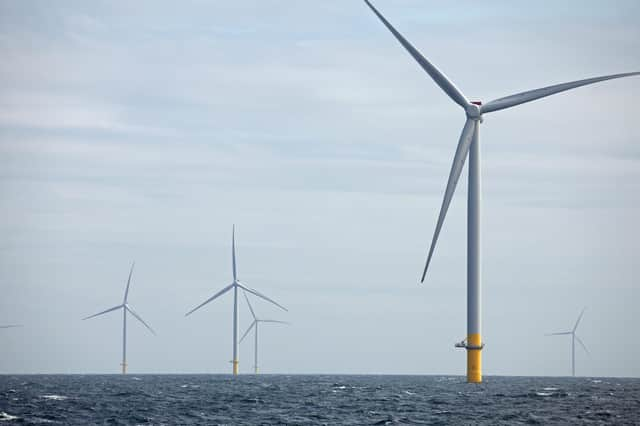Scotland's renewable revolution harmed by utterly ridiculous grid charges – Scotsman comment


Some may view this through a nationalist prism, but it actually appears to be more a case of official inertia, a bureaucratic failure to move with the times.
Once upon a time, it made perfect sense for electricity to be generated as close as possible to centres of population to reduce the amount lost during transmission and for the charging system to reflect that. This created an economic pressure to act efficiently by building power stations close to cities.
Advertisement
Hide AdAdvertisement
Hide AdHowever, the need to switch to renewable energy has turned the situation on its head. We now need to generate electricity where the wind blows, the waves crash and the tides flow.
And as anyone who has ever been to Scotland’s Atlantic coast knows, there are not many people living there, but the wind blows almost constantly and with a sometimes breath-taking force.
So much so that about 25 per cent of Europe’s offshore wind-energy capacity is in Scotland, a fact that has led Boris Johnson, among others, to talk about the UK becoming “the Saudi Arabia of renewables”.
A charging system that penalises wind farms in the windiest places – the most efficient sites for them to be built – damages efforts to transform our economy into a carbon-neutral one in the fight against climate change. And it also harms what is only going to become an increasingly important industrial sector, particularly when it is no longer possible to profit from North Sea oil and gas.
It was obvious the charges should have been changed more than a decade ago and it is even more important today. Why the situation has still not been addressed is hard to fathom and it is not good enough for the UK energy minister Anne-Marie Trevelyan to say the charging arrangements are a matter for Ofgem.
If Ofgem is failing to act in the best interests of the country, and indeed, the wider world, the government needs to intervene.
A message from the Editor:
Thank you for reading this article. We're more reliant on your support than ever as the shift in consumer habits brought about by coronavirus impacts our advertisers.
If you haven't already, please consider supporting our trusted, fact-checked journalism by taking out a digital subscription.
Comments
Want to join the conversation? Please or to comment on this article.
